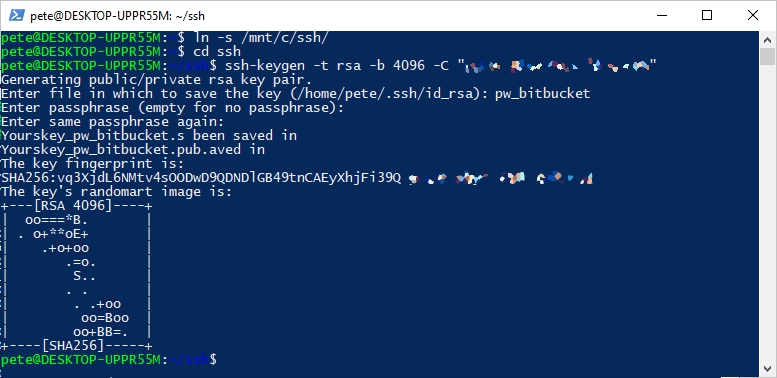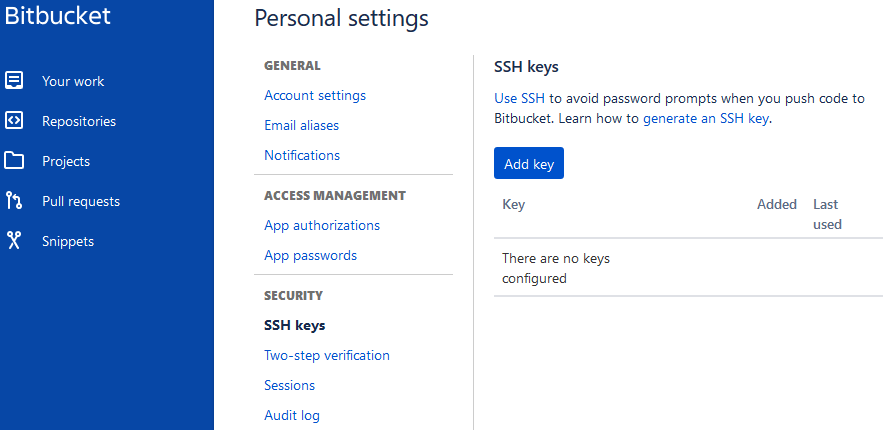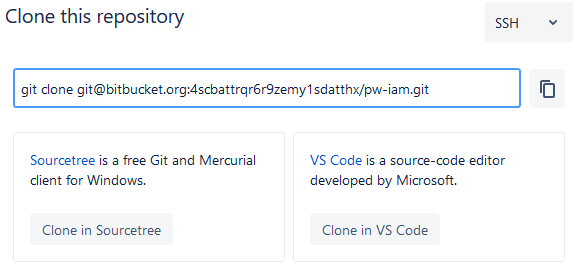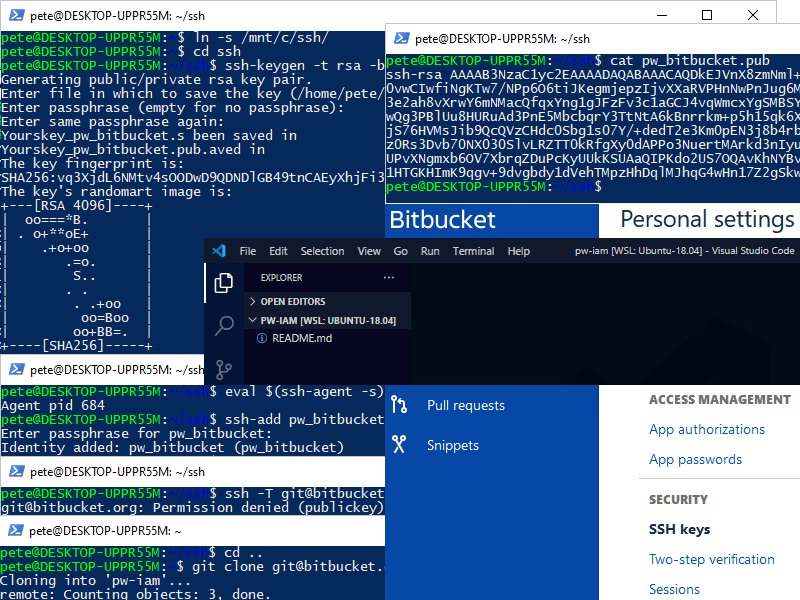Setup SSH Keys in WSL
Setup SSH Keys in WSL
Setting up SSH keys on Windows is generally done via OpenSSL or Putty. We can set this up and have quick authentication to places like GitHub or Bitbucket. But, we are also able to rely on a Linux distro in WSL for our SSH. If you are developing in WSL, this might be useful as that’s where you will be cloning your git repos to.
This post contains a demo of setting up SSH keys in WSL (Windows Subsystem for Linux), on an Ubuntu 20.04 distro. The version-control system being used here is Bitbucket.
The steps included in this SSH WSL setup are as follows:
# Create New SSH Key
# Add SSH Key to Agent
# Add SSH Key to Project
Create New SSH Key
I’m creating a new SSH key within a WSL linked folder, which means my SSH keys are backed up on the local machine in case anything happens on this WSL instance. Even though I can easily recreate and add a new SSH key to my Bitbucket account if need be.
This SSH key is being created with a password and being added to the SSH Agent so I don’t need to enter the password each time.
The following command will create a new SSH key in my WSL Ubuntu instance –
# Create a new ssh key ssh-keygen -t rsa -b 4096 -C "someone@email.com"

Add SSH Key to Agent
As mentioned above by adding our new SSH key to the ssh-agent so we don’t have to enter the passphrase every time we use it.
Run the following to add the SSH key to SSH Agent –
# Add ssh key to agent eval $(ssh-agent -s) ssh-add pw_bitbucket

Add SSH Key to Project
Now that the SSH key is ready, we just need to add that to the Git account you’re using. As mentioned, I’m using Bitbucket in this demo.
Run the cat Linux command on the public SSH key (.pub file) to show the SSH key for Bitbucket. Copy everything except the email at the end.

# Ssh to app/host ssh -T git@bitbucket.org
Below is an example of when you haven’t added the SSH key to your account yet –

This is what we are going to do now. Add the SSH key to your git/Bitbucket account.

Now re-trying the SSH connection –

“logged in as bl4h130b1aH” – We can see it has worked this time. Our SSH keys are stored in Bitbucket and we are logged in, and authenticated via SSH.
We are ready to clone a repo into WSL. Navigate to the desired folder in the WSL Linux terminal and run the git clone command as per the repo link.


The git repo has been cloned successfully. I will now open Visual Studio Code and get to work!




1 Comment
[…] This assumes SSH keys are set-up. […]